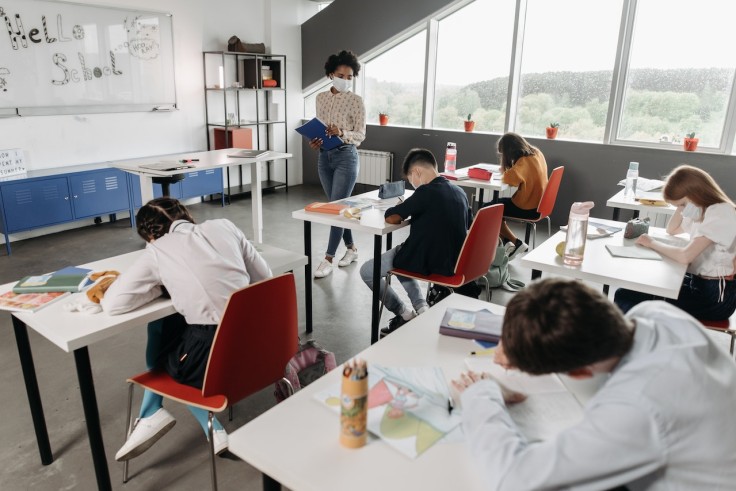
Students lost four months' worth of learning during the COVID school closures at the height of the pandemic, and the plan isn't clear on how students can recover.
People have claimed that the world is back to normal after the three-year COVID-19 pandemic. However, schools and students are far from getting back to normal.
Kids have been behind in their progress when COVID shut down the schools and even with virtual classes as alternatives. How much more now that disruptions are continually experienced one after another. An RSV or still a COVID outbreak, floods, ice storms, hurricanes, community events, school shootings, other school-related violence, and even water system breakdowns have suspended classes and hampered learning.
A new study published Monday aimed to measure the learning progress of school-aged children during the COVID-19 pandemic. The study found that the COVID school closures, compounded with the mental health that has taken its toll on students, have slowed their learning progress for about a trimester. The study reviewed 42 other studies implemented in 15 countries.
According to the study's lead author, Bastian A. Betthäuser, of Sciences Po in Paris, if this learning deficit will not be recovered, it is a potential "big problem for this generation."
Need for policies to recover learning
Despite billions of dollars and worth of efforts pouring into schools to redeem lost time, the deficit has remained relatively high. Fortunately, it has not also gotten far worse.
The study further revealed that children's math skills progressed much slower than reading, while the progression of kids from lower-income families and countries is far worse.
"We don't see a clear pattern for this deficit being recovered. That's certainly concerning.
There's no time to waste. I definitely think there's hope for policies to recover learning. We just have to do it," Betthäuser stressed to USA Today. And do it now and fast.
Betthäuser warned that there is a possibility that the students would not be able to catch up from the learning deficits if the country, and others as well, will not immediately act by investing in the right solutions and making sure that students are participating in the solution.
Parents need to step up
One possible solution would have been the high-quality summer schools offering to keep kids reading and doing math.
According to a survey by RAND Corporation, more school districts are turning to summer school offerings since the pandemic. However, the problem lies with sustainability. Challenges encountered were kids not attending regularly, programs not long enough to make a difference, and many school systems needing to consider what truly works when they set up summer classes.
Phyllis Jordan of FutureEd, a think tank based at Georgetown University, emphasized that kids will only benefit from school or tutoring programs if they show up.
In Los Angeles, where extra nonmandatory days were added to the school year during the winter break, only less than ten percent of students in the nation's second-largest district showed up.
Thus, this is where parents need to step up.
According to researcher Dan Goldhaber, the country has an "urgency gap," with good evidence that the children are not yet back on track in school and learning. However, national surveys suggest that parents think otherwise, believing they are "more or less back on track."
There is an urgency for parents to realize that their children are not all right at all. And once they do, they need to act - get them to summer school, tutoring, academic programs after school, and added days, and encourage and support their kids to attend whichever solution they come up with.
Moreover, parents should not "assume" that good grades are enough and wouldn't need any room for improvement.
Related Article: The Significance of Focusing on Early Education as Seen on Estonian's Highly Performing Educational System